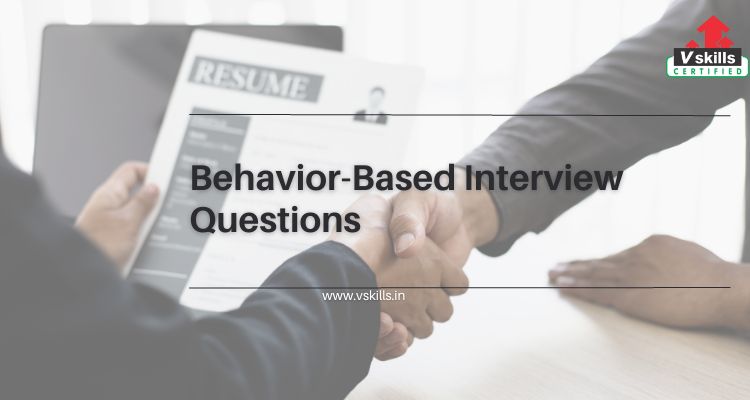Job interviews can be both exciting and nerve-wracking experiences. They’re an opportunity to showcase your skills, experience, and personality to potential employers. To make the most of this opportunity, both job seekers and interviewers turn to behavior-based interview questions. These questions go beyond the standard “tell me about yourself” and “what are your strengths and weaknesses” queries. They focus on your past behavior and experiences to predict how you might act in future situations. In this comprehensive guide, we’ll explore behavior-based interview questions, their importance, how to answer them effectively, and how to craft your own compelling responses.
Understanding Behavior-Based Interview Questions
Behavior-based interview questions are designed to reveal how a candidate has acted in specific situations in the past. The underlying principle is that past behavior is a strong indicator of future behavior. Instead of asking hypothetical or general questions, such as “How would you handle a difficult coworker?” or “What are your strengths and weaknesses?” interviewers ask candidates to provide examples from their past experiences.
These questions typically start with phrases like:
“Tell me about a time when…”
“Give me an example of…”
“Describe a situation where…”
Behavior-based questions aim to assess specific skills, competencies, and qualities crucial for the job in question. For example, if the job requires teamwork, the interviewer might ask, “Can you tell me about a time when you had to work as part of a team to achieve a common goal?” Your response will provide insights into your teamwork skills.
Why Do Employers Use Behavior-Based Interview Questions?
Predictive Value: By focusing on past behaviors, employers can predict how you might perform in a new role. It’s a practical way to understand your work style, problem-solving abilities, and interpersonal skills.
Concrete Examples: These questions demand specific examples, which help interviewers avoid vague or rehearsed answers. They encourage candidates to provide evidence of their claims.
Consistency: Behavior-based questions create a consistent interview experience. All candidates are evaluated using the same criteria, making it easier for employers to compare them.
Skill Evaluation: These questions are particularly effective for assessing soft skills such as communication, adaptability, leadership, and conflict resolution.
Red Flags: They can uncover potential red flags or areas of concern that might not come to light with traditional interview questions.
Diversity and Inclusion: Behavior-based questions can also help promote diversity and inclusion by focusing on skills and experiences rather than superficial factors.
Types of Behavior-Based Interview Questions
Behavior-based questions can cover a wide range of competencies and situations. Here are some common types of behavior-based interview questions:
1. Conflict Resolution
“Tell me about a time when you had a disagreement with a coworker. How did you resolve it?”
2. Leadership
“Give me an example of when you had to take charge of a project or team. How did you motivate your team?”
3. Adaptability
“Describe a situation where you had to quickly adjust to unexpected changes at work. How did you handle it?”
4. Communication
“Can you share a story about a time when you had to convey complex information to a non-technical audience?”
5. Problem-Solving
“Tell me about a challenging problem you encountered at work. How did you approach it, and what was the outcome?”
6. Time Management
“Describe a situation where you had multiple tasks and tight deadlines. How did you prioritize and manage your time?”
7. Customer Service
“Give me an example of a particularly difficult customer interaction. How did you handle it, and what was the result?”
8. Teamwork
“Tell me about a time when you had to work with a difficult team member. How did you handle the situation?”
These questions provide a snapshot of the candidate’s abilities and experiences in key areas.
How to Answer Behavior-Based Interview Questions
To respond effectively to behavior-based interview questions, follow the STAR method:
1. Situation
Start by describing the context. What was the situation? Provide a brief overview of the scenario without going into too much detail. Be concise but make sure the interviewer understands the setting.
2. Task
Explain the task or objective you were trying to achieve in that situation. What was your role, and what were you responsible for? This gives the interviewer a clear understanding of your responsibilities.
3. Action
Describe the specific actions you took to address the situation. Focus on what you did, not what the team did. Use “I” statements to illustrate your contributions. Be detailed but avoid rambling. Make sure your actions align with the competency being evaluated.
4. Result
Highlight the outcome or results of your actions. What happened as a direct result of what you did? Be sure to emphasize any positive impact you had, but also be honest about any challenges or failures. Interviewers are interested in how you learn from your experiences.
Here’s a simple example of using the STAR method to answer a behavior-based question:
Question: “Tell me about a time when you had to work under tight deadlines.”
Answer: “In my previous role as a marketing coordinator (Situation), I was tasked with launching a new product in a very competitive market, and we had an extremely tight deadline (Task). To meet the deadline, I organized the marketing team, set clear priorities, and established a detailed timeline. I personally took on several tasks, including writing copy, coordinating design work, and managing our social media campaign (Action). As a result of our efforts, we not only met the deadline but also achieved a 20% increase in product sales within the first month (Result).”
This answer demonstrates the candidate’s ability to manage time and work effectively under pressure.
Preparing for Behavior-Based Interview Questions
To ace a behavior-based interview, you need to prepare thoroughly. Here are some steps to help you get ready:
1. Review the Job Description
Study the job description carefully to identify the key competencies and skills the employer is looking for. This will give you a good idea of the types of behavior-based questions you might encounter.
2. Identify Past Experiences
Think about your past experiences and identify situations where you’ve demonstrated the competencies mentioned in the job description. Make a list of these scenarios, as they will be your go-to examples during the interview.
3. Apply the STAR Method
For each scenario, practice applying the STAR method. Write down your responses, emphasizing the specific actions you took and the results you achieved. This will help you stay focused and organized during the interview.
4. Practice
Practice your responses out loud. It might feel awkward at first, but speaking your answers will help you articulate your thoughts more clearly during the interview. You can also ask a friend or family member to conduct mock interviews with you.
5. Stay Calm and Confident
On the day of the interview, take a deep breath and stay calm. Remember that the interviewer is genuinely interested in your experiences and abilities. Be confident in your responses, but also be humble and willing to acknowledge areas where you’ve learned and grown.
Crafting Your Own Behavior-Based Questions
If you’re on the other side of the interview desk as an employer, crafting effective behavior-based questions is essential to find the right candidate.




